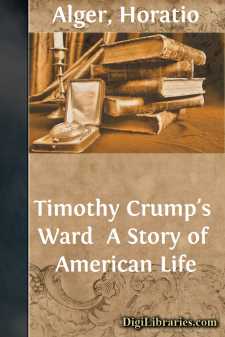Fiction
- Action & Adventure 180
- Biographical 15
- Christian 59
- Classics
- Coming of Age 5
- Contemporary Women 3
- Erotica 8
- Espionage/Intrigue 12
- Fairy Tales, Folklore & Mythology 236
- Family Life 169
- Fantasy 117
- Gay 1
- General 596
- Ghost 32
- Historical 808
- Horror 43
- Humorous 160
- Jewish 25
- Legal 4
- Medical 22
- Mystery & Detective 315
- Political 49
- Psychological 41
- Religious 64
- Romance 159
- Sagas 11
- Science Fiction 730
- Sea Stories 113
- Short Stories (single author) 537
- Sports 10
- Suspense 1
- Technological 8
- Thrillers 2
- Urban Life 31
- Visionary & Metaphysical 1
- War & Military 173
- Westerns 199
Classics Books
Sort by:
by:
Walter Crane
CHAPTER I. "Where did you come from, Baby dear?Out of the everywhere into here?"But how did you come to us, you dear?God thought about you, and so I am here!" G. Macdonald. His real name was Fabian. But he was never called anything but Carrots. There were six of them. Jack, Cecil, Louise, Maurice, commonly called Mott, Floss, dear, dear Floss, whom he loved best of all, a long way the best...
more...
by:
Horatio Alger
CHAPTER I. INTRODUCES THE CRUMPS. IT was drawing towards the close of the last day of the year. A few hours more, and 1836 would be no more. It was a cold day. There was no snow on the ground, but it was frozen into stiff ridges, making it uncomfortable to walk upon. The sun had been out all day, but there was little heat or comfort in its bright, but frosty beams. The winter is a hard season for the...
more...
by:
J. T. Bealby
. Councillor Krespel was one of the strangest, oddest men I ever met with in my life. When I went to live in H—— for a time the whole town was full of talk about him, as he happened to be just then in the midst of one of the very craziest of his schemes. Krespel had the reputation of being both a clever, learn lawyer and a skilful diplomatist. One of the reigning princes of Germany—not, however,...
more...
JEAN MUIR "Has she come?" "No, Mamma, not yet." "I wish it were well over. The thought of it worries and excites me. A cushion for my back, Bella." And poor, peevish Mrs. Coventry sank into an easy chair with a nervous sigh and the air of a martyr, while her pretty daughter hovered about her with affectionate solicitude. "Who are they talking of, Lucia?" asked the...
more...
by:
George Gibbs
CHAPTER I HERMIA Titine glanced at the parted curtains and empty bed, then at the clock, and yawned. It was not yet eight o'clock. From the look of things, she was sure that Miss Challoner had arisen and departed for a morning ride before the breaking of the dawn. She peered out of the window and contracted her shoulders expressively. To ride in the cold morning air upon a violent horse when she...
more...
by:
Mayne Reid
AUTHOR'S NOTE. Captain Mayne Reid is pleased to have had the help of an American Author in preparing for publication this story of "The Boy Slaves," and takes the present opportunity of acknowledging that help, which has kindly extended beyond matters of merely external form, to points of narrative and composition, which are here embodied with the result of his own labor. The Rancho,...
more...
by:
Gustave Dore
THE NATIVITY. And it came to pass in those days, that there went out a decree from Caesar Augustus that all the world should be taxed. (And this taxing was first made when Cyrenius was governor of Syria.) And all went to be taxed, every one into his own city. And Joseph also went up from Galilee, out of the city of Nazareth, into Judaea, unto the city of David, which is called Bethlehem; (because he...
more...
They found Burnamy expecting them at the station in Carlsbad, and she scolded him like a mother for taking the trouble to meet them, while she kept back for the present any sign of knowing that he had staid over a day with the Triscoes in Leipsic. He was as affectionately glad to see her and her husband as she could have wished, but she would have liked it better if he had owned up at once about...
more...
I Mr. Alden P. Ricks, known in Pacific Coast wholesale lumber and shipping circles as Cappy Ricks, had more troubles than a hen with ducklings. He remarked as much to Mr. Skinner, president and general manager of the Ricks Logging & Lumbering Company, the corporate entity which represented Cappy's vast lumber interests; and he fairly barked the information at Captain Matt Peasley, his...
more...
by:
John Fiske
CHAPTER I. THE ROMAN IDEA AND THE ENGLISH IDEA. It used to be the fashion of historians, looking superficially at the facts presented in chronicles and tables of dates, without analyzing and comparing vast groups of facts distributed through centuries, or even suspecting the need for such analysis and comparison, to assign the date 476 A.D. as the moment at which the Roman Empire came to an end. It was...
more...











